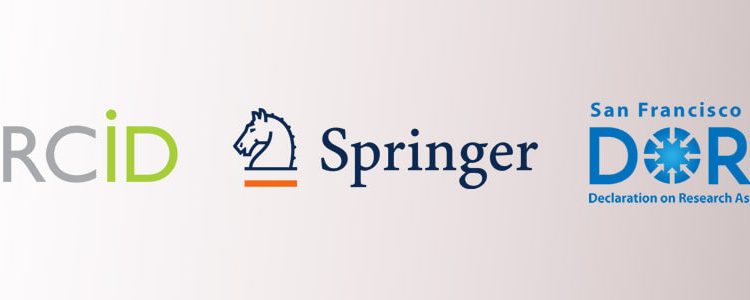Springer Journals Signs DORA and Expands ORCID Initiative

The journal impact factor, initially conceived by Dr. Eugene Garfield as a way to measure the quality of scholarly journals, has frequently been misused. Impact factors are used as a proxy for the quality of a researcher, which can, therefore, influence how a researcher is promoted or whether or not they receive a grant. This is outside the scope of the impact factor—a researcher can publish quality work anywhere, not just in a journal with a high impact factor. Impact factors are usually presented in the journal citation report, which assesses hundreds of scholarly journals. There needs to be a new, more comprehensive way to measure the impact of research. In an attempt to turn the tide, the San Francisco Declaration of Research Assessment (DORA) was signed. This was conceived by the research community at an American Society for Cell Biology meeting in 2012. Recently, SpringerOpen and BioMed Central signed the DORA.
BioMed Central and SpringerOpen becoming signatories to DORA means that they, too, will do their part to reduce the reliance on impact factor as a promotional tool. These scholarly journals will now present the impact factor in a wider context that includes a variety of other journal metrics. This has already started on BioMed Central but the process will be gradual as signing the DORA affects more than 300 journals. However, these changes should be complete by the end of the year, even though this would not completely replace the impact factor altogether. Some journals have completely stopped reporting their impact factors.
Toward the end of April, Springer Nature also announced two new ORCID initiatives. The first is a trial during which all corresponding authors submitting to any of Springer Nature’s 46 journals will be required to have an ORCID iD. This initiative will involve Nature Research, Springer, and BioMed Central. The trial will run for six months and the opinion of researchers who published in these journals during the trial will be sought as part of the trial’s evaluation. Alison Mitchell, Chief Publishing Advisor at Springer Nature, explained that this trial would increase the use of ORCID iDs and help researchers to receive recognition for their full body of work.
Springer Nature will also become the first publisher to include ORCID iDs in their proceedings papers. The Springer proceedings submission system will now allow authors to enter and validate their ORCID iDs. Those who use other conference management systems (other than Springer’s) will be able to provide ORCID iDs as well. This is a major step forward for ORCID and the ability of researchers to receive credit for all their work since Springer publishes about 1,200 proceedings volumes on an annual basis. This is especially important for computer scientists and engineers in whose field publication in the proceedings of top conferences is more prestigious than publication in a scholarly journal.
These changes instituted by Springer journals should help the research community by allowing scientists to receive full credit for their work as well as advance DORA’s mission of preventing the misuse of the impact factor. The San Francisco DORA was conceived as a way to end the use of the journal citation report’s impact factor for a scholarly journal as a way to judge an individual researcher. SpringerOpen’s and BioMedCentral’s signing of the DORA should help with finding new ways to measure the impact of research.









